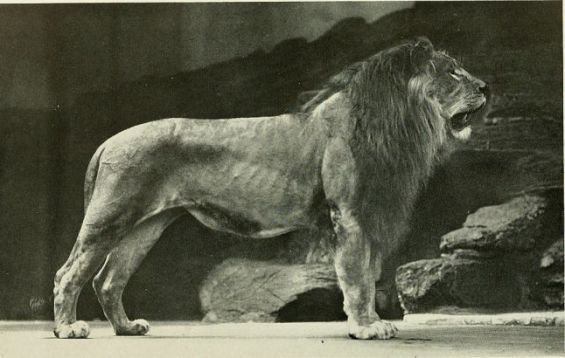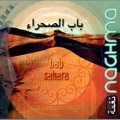The United States Presidents received throughout the years the weirdest presents ever. From precious jewelry pieces to wild animals, the White House was showered by gifts presented by friendly states, including the Kingdom of Morocco.
In the 1800s, after Morocco established diplomatic ties with the United States, Sultan Abd al-Rahman ibn Hisham had the great idea of offering the eighth president of the United States two of the finest animals living in the Kingdom.
The Alaouite Emperor sent a lion and a lioness to the American consulate in Tangier. The Atlas felines, however, were about to create a diplomatic crisis between the two states which ratified the longest unbroken treaty in the history of the United States.
The story of the Atlas Lions was a huge burden on the American Consul in Tangier Thomas Carr. It was also at the heart of a long letter he sent to President Martin Van Buren to complain about the furry beasts and the gift he couldn’t refuse.
 The United States President Martin Van Buren. / Ph. DR
The United States President Martin Van Buren. / Ph. DR
Although the American congress forbade Presidents and government officials from accepting gifts, especially expensive ones, the Moroccan sultan was determined to deliver his present to the American head of state.
A gift you can't refuse
In a letter sent in September the 3rd, 1839, the US consul wrote that «although [he has] exerted [himself] to the utmost to prevent the presentation of any animals from the emperor, and to convince his ministers of the impossibility of accepting a gift or present of any kind, [his]exertions have not been attended with success».
The letter, quoted by «First Session of the Twenty-Sixth Congress» (Order of the senate of the United States, 1840), reveals that after exasperatedly explaining to Moroccan officials that he couldn’t accept the gifts, he was put in an embarrassing situation.
«It was rumored that a party were on their way from Fez, with some animals for the American consulate», wrote Carr, who reported that he «communicated to the governor and public administrator [his] determination to refuse whatever might be sent».
Carr’s words fell on deaf ears. He was told that they couldn’t do anything about it and that the «present must be made». The American diplomat was even told to «mind his business» and that the gift was not for him but for the President of the United States.
 An Atlas Lion in the Atlas Mountains. / Ph. DR
An Atlas Lion in the Atlas Mountains. / Ph. DR
Annoyed by the situation, Carr decided to write to the Emperor himself, «but before a letter could be prepared, the sound of drums announced the arrival of the bashaw’s nephew, at the head of the troop of soldiers, with an enormous magnificent lion and lioness».
The consul was immediately put between the devil and the blue sea. The commander of the troop knew exactly how to reply to the diplomat’s arguments and had an answer to every question he asked.
Explaining to the troop’s commander that the President is not allowed to accept the gift, the diplomat was told that «the sultan knew about that» and that the gift was not for Van Buren but for the Congress. When told that it was the Congress that decided to put an end to the tradition, the Moroccan official asked who made «the Constitution». When told that it was made by «the People», the Moroccan then argued that the present was for the «People of America».
Atlas Lions in the American Legation
Determined to deliver the two beasts, the official ended up telling the diplomat that «it will cost [him his] head if [he] disobeys». The official went on, stressing that he would leave the lions in the street, right in front of the American consulate. The idea was so scary to the diplomat that he had to think of a rapid solution.
«Seeing further resistance, hopeless, and that to persist in the refusal would be to destroy the good feeling with which this consulate is at present regarded, I was compelled to surrender to this novel form of attack and to open one of my rooms for the reception of the animals».
In November, a letter from the White House brought with it a solution for the consul, who was burdened with the expensive stay of these animals. Signed by the US Secretary of States, the letter authorized the consulate to ship the lions to the United States.
«Those reasons (previously cited in the consul letter) were properly appreciated by the President, who presides that you should be instructed to send the animals to the United States, either by a public ship, or by some merchant vessel», the official wrote.
According to a Washington Post article, the congress accepted that Van Buren sells the sultan’s gift. «The lions, shipped from Morocco to Pennsylvania, were auctioned off in Philadelphia’s Navy Yard in August 1840 for $375», the newspaper concluded.





 chargement...
chargement...













